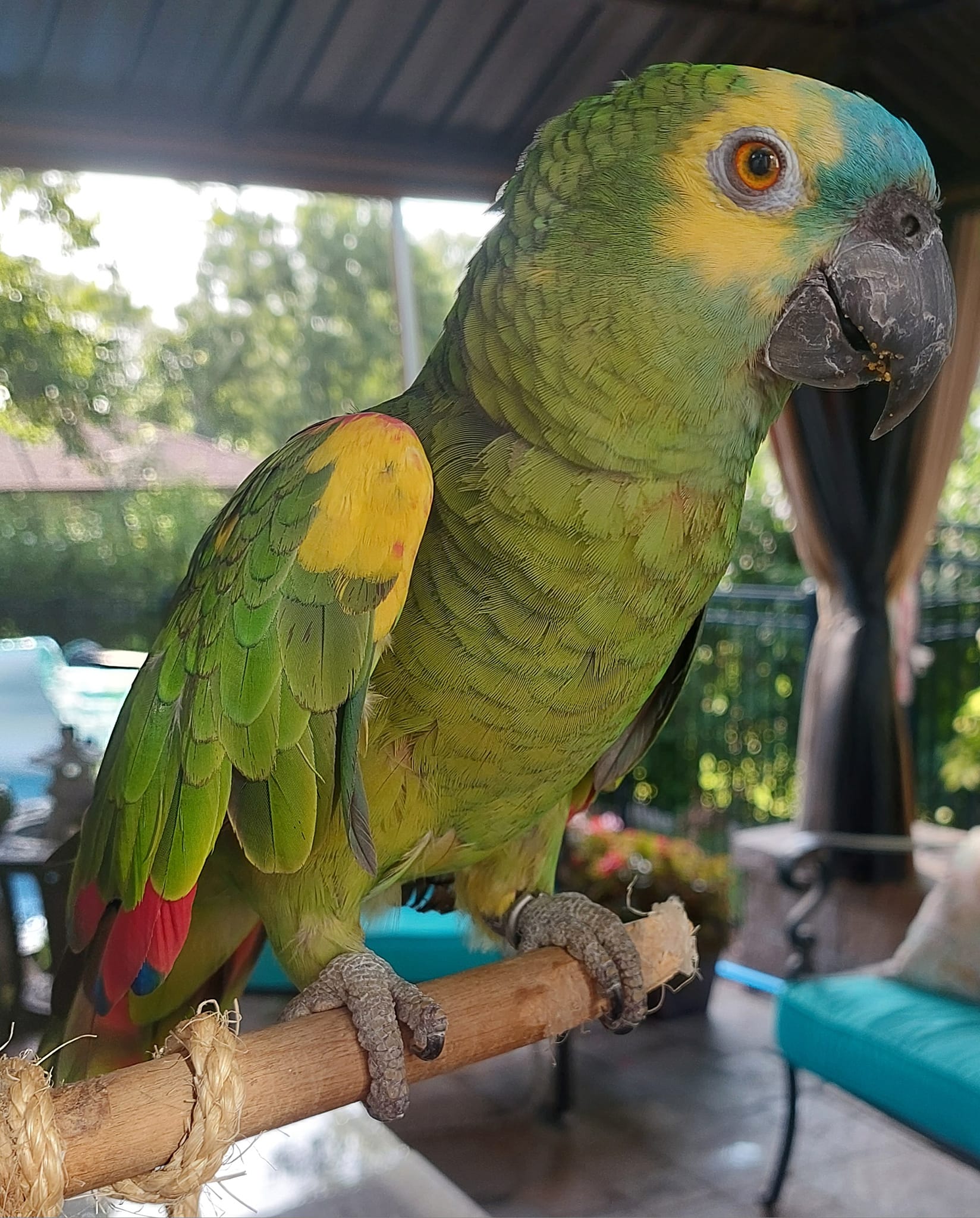
The Elderly Parrot
Generally, parrots have a long lifespan if properly cared for. Some larger parrot species
have been known to live as long as 80 years and smaller species live up to an average of
15 years. Either way, we know that these companion pets are long lived and bring many
years of enjoyment to our lives. However, due to the longevity of these pets, it important
to realize they do grow older with the years and nature takes it course. As your feathered
friend ages, special attention is needed in order keep your companion physically and
mentally healthy.
Taking a senior parrot to an avian veterinarian for yearly well checks is imperative for
your beloved pet bird. These annual check ups allow the vet to assess the health and wellbeing of your parrot and may prevent unnecessary problems from developing. Conditions
often develop and progress quickly in an elderly parrot.
As a parrot owner, you have become aware of your bird’s body language and behavior. Changes in behavior and appearance are signs of illness and issues that should be brought to the attention of an avian professional immediately. Take the time to examine you older parrot on a daily basis. Arthritis and cataracts can sometimes affect elderly birds. If eyes appear cloudy this may be a sign of cataracts, which can cause your bird to startle easier than normal and can even lead to blindness. If you notice your parrot is having trouble holding on, standing, climbing or moving around on perches, this can be a sign of arthritis. While changing the lining in the cage, you should also examine the droppings of your bird. Changes in frequency, color and/or consistency of the dropping
should be brought to your veterinarian’s attention as well.